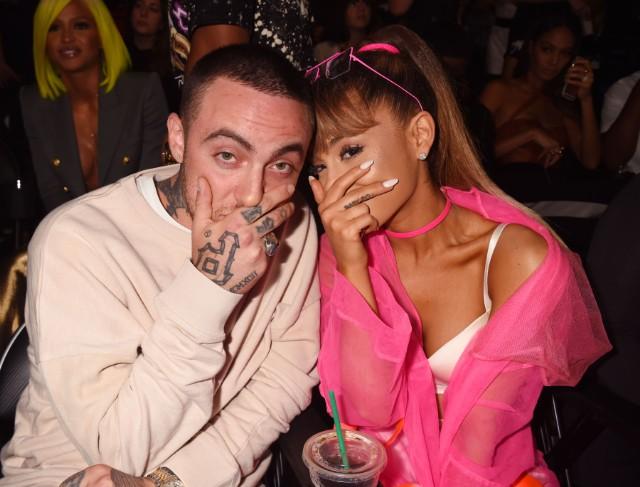During the days following the unfortunate death of rapper Mac Miller, I found myself scrolling through in memoriam posts on both Instagram and Twitter. Fellow celebrities and fans alike went to social media to express their gratitude and sorrow, many mentioning how he changed the rap industry—with all of his albums debuting in the Billboard chart’s top five—and helped them through their darkest times. However, commentary from a number of fans followed a disturbing trend conveying a simple but strong sentiment: I blame Ariana.
Although both his family and authorities had already put out statements that Miller had overdosed on drugs, some fans still immediately attacked pop singer Ariana Grande, who dated the rapper from Aug. 2016 until May 2018. When Miller got into a car accident around the time of the breakup due to driving under the influence, fans were quick to blame Grande, forcing her to defend herself via social media. In a Twitter post, Grande explained how unfair it was that everyone expected her to “stay in a toxic relationship because he wrote an album” about her. In no way was it her job to act as his caretaker, yet Miller’s fans still expected her to do so.
After seeing how fans suspected her of being involved in Miller’s car accident, I shouldn’t have been surprised to see so many people blame Grande for the death of her ex-boyfriend. Yet, I was. She had already mentioned how unhealthy the relationship had been for her and explained that they were still best friends, so why did so many fans think it was okay to attack her when she was—like everyone else—grieving for a loved one?
Time and time again, we’ve seen women get attacked for the setbacks of their past or current lovers, regardless of their fame. This is in no way an isolated incident. When world-renowned chef and TV personality Anthony Bourdain committed suicide, his girlfriend, actress Asia Argento was the subject of “vicious cyberbullying and repulsive slander” by fans of the chef, according to the LA Times. A number of celebrities, ranging from Terry Crews to Olivia Munn, eventually chose to come out and voice their solidarity with the actress.
So why does this happen? It’s quite simple: when people don’t know where to place the blame, they see these women as easy targets. They forget that these women are human beings who are mourning their loved ones and see them simply as solutions. They cannot fathom why someone they have looked up to is no longer in the world, so they seek a scapegoat and spread hurtful sentiments through social media, no matter how absurd it actually is, and these women have to pay the price.
Grande, who has admitted to suffering from both PTSD and an anxiety disorder due to events in the past few years—including the May 2017 Manchester Arena bombing incident in May 2017 where a suicide bomber killed 22 other people during a Grande concert—has said that she will be taking time away from the public eye to heal. As a society, we have temporarily broken her. We have forgotten her humanity and used her like a punching bag.
Now, a trend has emerged. This trend of strong and independent women being blamed for the deaths and misfortunes of their lovers is yet another form of misogyny that needs to be rectified. Men have to be held accountable for their actions, even posthumously. Ariana Grande was not responsible for Mac Miller’s sobriety, and put her own mental health first by becoming less active in his life, and that is okay. Regardless of what anyone says, Ariana Grande in no way killed Mac Miller, a drug overdose did. We should not add insult to injury for Grande by blaming her.




K | Sep 27, 2018 at 11:58 am
This is written poorly about a relationship that was only viewed through alternate perspectives. I wish journalism were real. Especially when regarding important topics such as addiction.